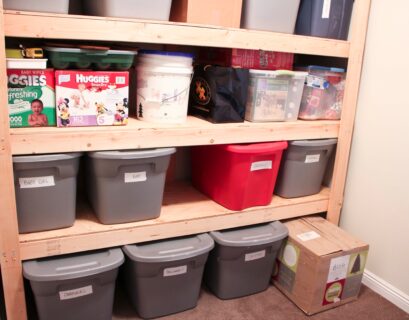In today’s fast-paced world, finding a sense of balance can be challenging. One of the most effective ways to manage your time and reduce stress is by establishing a daily routine. A well-structured routine can provide stability, increase productivity, and improve your overall well-being. Here’s how to create a daily routine that works for you and your family.
Benefits of a Daily Routine
A daily routine offers numerous advantages:
- Consistency: Provides a sense of structure and predictability in your day.
- Productivity: Helps you prioritize tasks and manage your time efficiently.
- Stress Reduction: Reduces the mental load of decision-making by establishing habits.
- Health and Well-being: Encourages regular sleep, exercise, and healthy eating habits.
- Work-Life Balance: Helps separate work from personal time, ensuring you have time for both.
Steps to Establish a Daily Routine
- Identify Priorities Start by identifying your top priorities. These might include work, family time, exercise, hobbies, and self-care. Knowing what’s most important to you will help you structure your day around these activities.
- Set Goals Define specific goals for each priority area. For example, if exercise is a priority, set a goal to work out for 30 minutes each day. Clear goals give you direction and motivation.
- Create a Schedule Develop a daily schedule that includes time blocks for each priority. Start with fixed commitments like work or school, then fill in other activities around them. Make sure to include breaks and downtime.
- Morning Routine Establish a morning routine that sets a positive tone for the day. This could include activities like stretching, meditation, a healthy breakfast, and planning your day. A consistent morning routine can boost your mood and productivity.
- Work and School Routine Set specific times for work or school tasks. Avoid multitasking and focus on one task at a time. Use tools like calendars and to-do lists to stay organized and on track.
- Breaks and Downtime Schedule regular breaks to rest and recharge. Short breaks throughout the day can improve focus and prevent burnout. Make sure to also include time for hobbies, relaxation, and socializing in your routine.
- Evening Routine An evening routine can help you unwind and prepare for restful sleep. Consider activities like reading, journaling, or a warm bath. Avoid screens and stimulating activities before bed to promote better sleep quality.
- Consistency and Flexibility Consistency is key to establishing a routine, but flexibility is also important. Be prepared to adjust your schedule as needed and don’t be too hard on yourself if things don’t always go as planned.
Tips for Maintaining Your Routine
- Start Small If you’re new to routines, start with small changes and gradually build up. Trying to overhaul your entire day at once can be overwhelming.
- Use Tools and Apps Use planners, calendars, or apps to help you organize and stick to your routine. Digital tools can send reminders and keep you on track.
- Involve Your Family If you live with others, involve them in creating a routine that works for everyone. Shared routines can foster a sense of teamwork and ensure everyone’s needs are met.
- Review and Adjust Regularly review your routine to see what’s working and what isn’t. Adjust as needed to better fit your lifestyle and goals.
- Stay Positive Focus on the positive aspects of your routine and celebrate small successes. A positive mindset can help you stay motivated and committed.
Sample Daily Routine
Here’s an example of a balanced daily routine:
Morning:
- 6:30 AM: Wake up and stretch
- 7:00 AM: Healthy breakfast
- 7:30 AM: Plan the day and review goals
- 8:00 AM: Work or school tasks
Midday:
- 12:00 PM: Lunch break
- 1:00 PM: Work or school tasks
- 3:00 PM: Short break for a walk or quick exercise
Afternoon:
- 5:00 PM: Finish work or school tasks
- 5:30 PM: Family time or hobbies
Evening:
- 7:00 PM: Dinner
- 8:00 PM: Relaxation (reading, watching TV, etc.)
- 9:30 PM: Evening routine (bath, journaling)
- 10:00 PM: Prepare for bed
Conclusion
Establishing a daily routine can bring structure and balance to your life, helping you manage your time more effectively and reduce stress. By identifying your priorities, setting clear goals, and creating a flexible schedule, you can develop a routine that enhances your productivity and well-being. Start building your daily routine today and experience the benefits of a more organized and fulfilling life.











